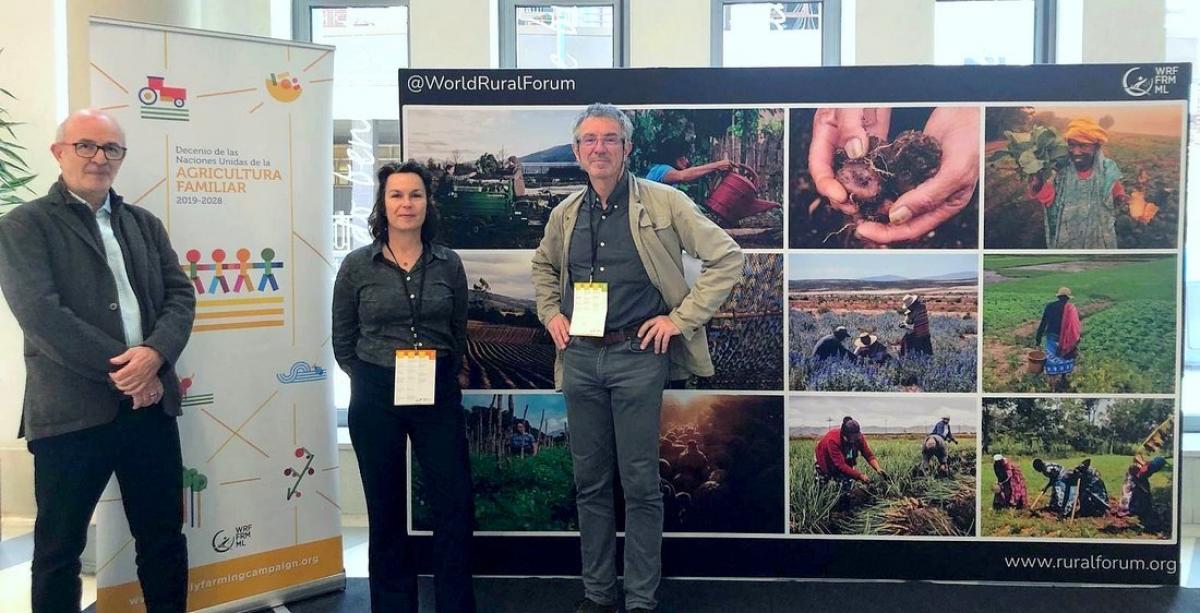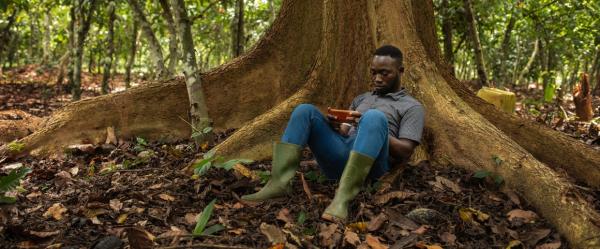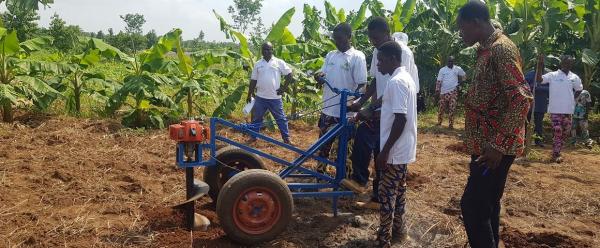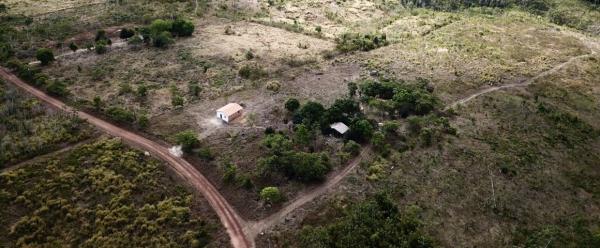Call to action 25 November 2025
- Home
- CIRAD news
- News
- Family farms are crucial for the planet
Family farming has a vital role to play in "sowing sustainability"
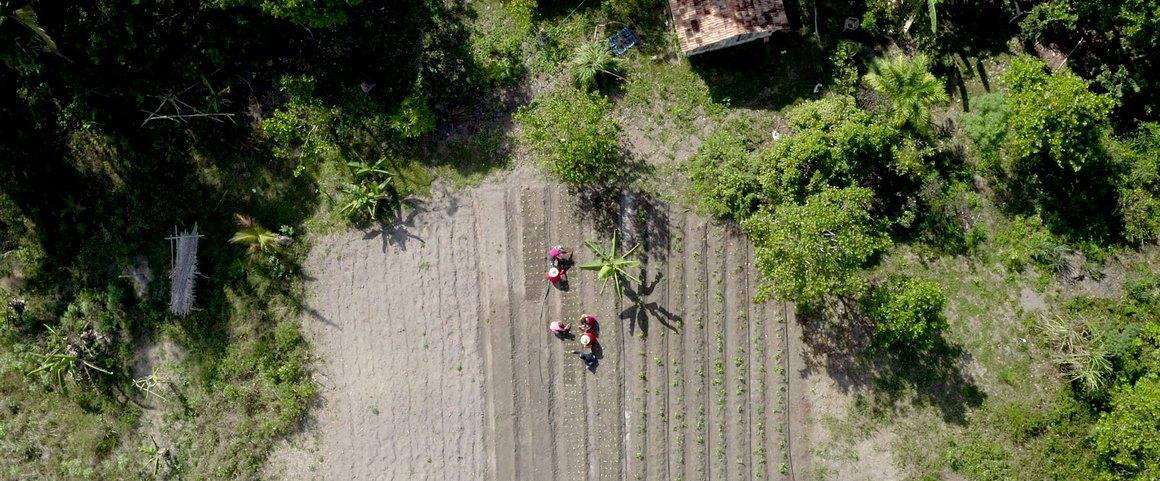
Family farms produce 80% of the world's food © CIRAD/Galaxie
"We recognise the vital role of family farmers (…) for the sustainability of the planet. We highlight their catalytic contribution to economic development, guaranteeing the production of healthy and quality food, ensuring territorial balance, managing natural resources in a more sustainable way, preserving knowledge and wisdom."
These words are taken from the declaration issued at the VIII Global Conference on Family Farming, organized by the World Rural Forum (WRF). That position is fully shared by CIRAD, which is a member of the WRF and has been working to support family farming since its founding in 1984.
More than 200 participants attended the three-day conference. They included representatives of family farmers in both North and South, civil society organizations, and high-level representatives from FAO, IFAD or the European Commission Directorate General for International Partnerships (DG INTPA), all of whom are both witnesses to and players in a growing dynamic around the World Rural Forum as a global alliance, particularly since the WRF has financial support from its members, and also from IFAD and DG INTPA.
Family farming, a huge phenomenon…
"Family-run production units were long overlooked and seen as a form of production likely to become of minor importance, but they are in fact both huge and crucial in more than one respect", says CIRAD economist Sara Mercandalli. "In value terms, family farms produce some 80% of food and employ a third of the world's people. They are a great place to start making our food systems more sustainable and reducing global inequalities, and as such, they should get more consideration and support in terms of public policy." In other words, family farms have the power to change the planet, as FAO Director of Partnerships and UN Collaboration Marcela Villarreal pointed out in her talk at the conference.
… at the heart of the challenges facing our planet
The declaration calls for global policy to recognize the multi-dimensional nature of family farming and its relevance to every aspect of the 2030 Agenda: food, nutrition, health, access to land, biodiversity, climate, and the fight against poverty and inequality.
Five years ago, the UN declaration of a Decade of Family Farming (2019-2028) was a major milestone. Family farmers' aspirations are now clearly visible and concrete proposals have been made. While the world faces a range of crises and ever-greater challenges, it is vital that we invest in family farming within solid, protective policy frameworks including mechanisms to encourage the participation of and social dialogue with the organizations that represent such farmers.
National family farming committees in more than 50 countries
The conference was a valuable opportunity to take stock of past achievements, pinpoint fields with room for improvement and identify the existing and emerging challenges, and propose a sound, coherent path for the future, on a national, regional and global level.
The declaration highlighted the importance of strengthening national family farming committees, to serve as multi-stakeholder dialogue platforms with a view to updating and improving public policy in different countries, reinforcing the links between agendas, developing good practices and tackling current challenges. It is vital that we improve their role and involvement in drafting public policy, by providing them with the resources needed to achieve significant results.
Public policy analysis expertise
This tallies with the first pillar of the UN Decade of Family Farming: "Develop an enabling policy environment to strengthen family farming". It is also one of CIRAD's fields of expertise, thanks to its several decades of participatory research on public policy in support of family farming and on comparing national and international structures, notably through its Actors, Resources and Territories in Development research unit, the Public policy and rural development in Latin America platform (PP-AL) and the observatory of farming systems in the Indian Ocean. For Leonard Mizzi, Head of Unit at DG INTPA, that research and knowledge needs to be connected with policymaking bodies if it is to be truly transformative.
CIRAD scientists and their partners will be in Porto Alegre (Brazil) from 7 to 9 May for the next event in this Decade of Family Farming: the international seminar Family Farming: Challenges and Perspectives 10 Years after the International Year of Family Farming 2014.
CIRAD economist Sara Mercandelli was at the VIII Global Conference on Family Farming, and gave a talk on participatory science. She stresses that at CIRAD, participatory approaches are used to produce three types of scientific and technical outputs:
> Actionable knowledge, by means of participatory, citizen science, for instance observation or data consolidation apps and devices, such as Pl@ntNet, counting devices, open information platforms or decision support systems.
> Bespoke solutions, by means of co-construction, testing and evaluation, such as living labs, research-action systems, user-centred design, pilot farms or companion modelling (Commod).
> Those obtained by means of better science-policy interactions or by involving decision-makers in research processes. Some examples: the ImpresS approaches, foresight and anticipation operations, community health surveillance, etc.
Such participatory approaches, involving family farmers, have several advantages, notably they create spaces that allow beneficiaries to express their needs more effectively and build capacity among social players, from farmers to policymakers, by improving appropriation of scientific results and making solutions more easily adjustable.
However, scientists must be prepared to listen, and to implement new, often more complex methodologies, particularly since ethical issues are emerging as regards such approaches and how they handle the public and policymakers, since different social spheres are not always ready to interact and work together directly.

























